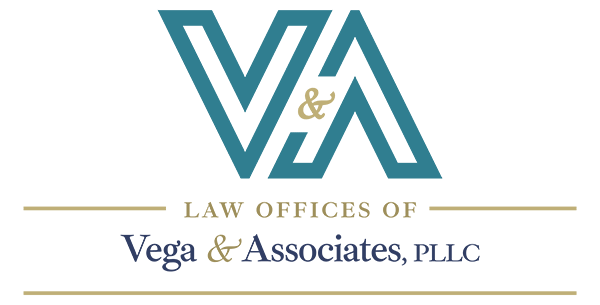US visitor visa lawyer Houston

Overview
In general, a citizen of a foreign country who wishes to enter the United States must first obtain a visa, either a nonimmigrant visa for temporary stay, or an immigrant visa for permanent residence. The visa allows the foreign citizen, to travel to a United States port-of entry and request permission of the USCBP immigration inspector to enter the U.S. The “visitor” visa is a nonimmigrant visa for persons desiring to enter the United States temporarily for business (B-1), for pleasure or medical treatment (B-2), or combination of both (B-1/B-2) purposes.
Business Visitor Visas (B-1) – If the purpose for a planned travel to the U.S. is to consult with business associates, travel for a scientific, educational, professional or business convention, or conference on specific dates, settle an estate, or negotiate a contract, then a business visitor visa (B-1) would be the appropriate type of visa for your travel.
Pleasure, Tourism, Medical Treatment – Visitor Visas (B-2) – If the purpose of the planned travel to the U.S. is recreational in nature, including tourism, amusement, visits with friends or relatives, rest, medical treatment, and activities of a fraternal, social, or service nature, then a visitor visa (B-2) would be the appropriate type of visa for your travel.
Visa Waiver Program
Travelers coming to the U.S. for tourism or business for 90 days or less from qualified countries may be eligible to visit the U.S. without a visa if they meet the visa waiver program requirements. Registration through the Electronic System for Travel Authorization (ESTA) the automated system that determines the eligibility of visitors to travel to the United States under the Visa Waiver Program (VWP) is required for visitors who intend to arrive by air or sea.
Currently, 39 countries participate in the Visa Waiver Program:
Andorra (1991), Australia (1996), Austria (1991), Belgium (1991), Brunei (1993), Chile (2014), Czech Republic (2008), Denmark (1991), Estonia (2008), Finland (1991), France (1989), Germany (1989), Greece (2010), Hungary (2008), Iceland (1991), Ireland (1995), Italy (1989), Japan (1988), Republic of Korea (2008), Latvia (2008), Liechtenstein (1991), Lithuania (2008), Luxembourg (1991), Malta (2008), Monaco (1991), Netherlands (1989), New Zealand (1991), Norway (1991), Poland (2019), Portugal (1999), San Marino (1991), Singapore (1999), Slovakia (2008), Slovenia (1997), Spain (1991), Sweden (1989), Switzerland (1989), Taiwan (2012), United Kingdom** (1988)
Qualifying for a B-1 or B-2 Visa
Applicants for visitor visas must show that they qualify under provisions of the Immigration and Nationality Act. and must demonstrate that they are properly classifiable as visitors under U.S. law.
The presumption in the law is that every visitor visa applicant is an intending immigrant. Therefore, applicants for visitor visas must overcome this presumption by demonstrating that:
- The purpose of their trip is to enter the U.S. for business, pleasure, or medical treatment;
- That they plan to remain for a specific, limited period;
- Evidence of funds to cover expenses in the United States;
- Evidence of compelling social and economic ties abroad; and
- That they have a residence outside the U.S. as well as other binding ties that will insure their return abroad at the end of the visit.
Applying for a Visitor Visa
Applicants for visitor visas should generally apply at the American Embassy or Consulate with jurisdiction over their place of permanent residence. Although visa applicants may apply at any U.S. consular office abroad, it may be more difficult to qualify for the visa outside the country of permanent residence.
Visa applications are now subject to a greater degree of scrutiny than in the past so it is important to apply for your visa well in advance of the travel departure date.
Required Documentation
It is important that you refer to the Embassy Consular Section web site to determine visa processing timeframes and instructions, interview scheduling, and find out if there are any additional documentation items required other than the DS-160, a valid passport, processing and issuance fees, and an interview.
Applicants must demonstrate that they are properly classifiable as visitors under U.S. law by:
- Evidence which shows the purpose of the trip, intent to depart the United States, and arrangements made to cover the costs of the trip may be provided. It is impossible to specify the exact form the documentation should take since applicants’ circumstances vary greatly.
- Those applicants who do not have sufficient funds to support themselves while in the U.S. must present convincing evidence that an interested person will provide support.
- Depending on individual circumstances, applicants may provide other documentation substantiating the trip’s purpose and specifying the nature of binding obligations, such as family ties or employment, which would compel their return abroad.
CONTACT A BOARD-CERTIFIED IMMIGRATION ATTORNEY AT ADAN G. VEGA & ASSOCIATES, PLLC
We represent clients worldwide and offer consultations with an experienced Board-Certified immigration lawyer, either by telephone or at our Houston office. To schedule an appointment to talk privately with one of our experienced attorneys, call (713) 527-9606 or contact us online.
